Philosophy IAS Mains Question Paper 2022:
There are Eight questions divided into Two Sections. Candidate has to attempt Five questions in all. Questions no. 1 and 5 are compulsory and out of the remaining, any Three are to be attempted choosing at least One question from each section.
| Philosophy IAS Mains Question Paper 2021 Paper- I |
Section- A:
1:- (a) How does Plato use the theory of forms to establish the relation between epistemology and metaphysics? Discuss. (10)
(b) What is Bertrand Russell’s method of logical analysis? How does it ultimately end in establishing atomic theory of meaning? Discuss. (10)
(c) Establish the tenability of later Wittgenstein’s motion of language as form of life. (10)
(d) What is psychologism? Critically discuss the way Edmund Husserl avoids the problem of psychologism in the discourse of transcendental phenomenology. (10)
(e) What is apperception, according to Immanuel Kant? Discuss with reference to his transcendental exposition of space and time. (10)
2:- (a) Provide a critical account of Heidegger’s Being-in-the-world and discuss the problem of ‘authenticity’ in the context of Dasein. (20)
(b) Is Aristotle’s view of nature of identity in consonance with his metaphysical view of causes as processes? Discuss giving suitable examples. (15)
(c) Discuss the concept of substance according to Spinoza. Does his discussion on substance lead to pantheism? Substantiate your view. (15)
3:- (a) How does Kant construct antinomies to illustrate the illusory tendencies of pure reason? Explain and examine the antinomies presented by Kant. (20)
(b) What is the dialectical method in the philosophy of George Wilhelm Hegel? How does this method help in realizing the Absolute? Discuss. (15)
(c) Is there any difference between pictorial form and logical form in Ludwig Wittgenstein’s picture theory of language? How does the logical form define the relation between language and reality? Explain. (15)
4:- (a) How does Soren Kierkegaard define the notion of ‘subjectivity’? Explain it with reference to three stages of existence as propounded by him.
(b) How does Rene Descartes explain the notion of certainty with reference to knowledge of the self? Critically discuss the way it differs from the knowledge of the world.
(c) Why and how does John Locke refute the innate ideas? Elucidate the nature and source of knowledge in Locke’s epistemology.
Section- B:
5:- a). Examine and evaluate the proofs given by Samkhya philosophy to prove the existence of Purusa. (10)
b). What is the ontological status of Samanya, according to Vaisesika Philosophy? Critically examine. (10)
c). Discuss the nature and different stages of Samadhi as per Patanjala yoga and examine the role of Isvara in it. (10)
d). How does Jaina view of Karma bear upon their soteriology? Critically discuss. (10)
e). Do you agree with the view that ‘Vivartavada is the logical development of Parinamavada’? Give reasons in support of your answer. (10)
6:- (a) How compatible is Buddhist theory of momentariness with their theory of Karma? In this regard how do Buddhists respond to objections raised by their opponents? Critically discuss. (20)
(b) ‘The doctrine of ‘Relativism’ of Jain Philosophy cannot be logically sustained without postulating ‘Absolutism’.’ Critically examine this view and give reasons in the favour of your answer. (15)
(c) How do Mimamsakas refute the Nyaya view that Implication (arthapatti) is reducible to Inference (anumana) and establish Implication as an independent means of valid knowledge (pramana)? Critically discuss. (15)
7:- (a) Inspite of accepting the intrinsic validity of knowledge, why and how Prabhakar and Kumarila differ in their interpretation of erroneous cognition? Discuss. (20)
(b) Explain Buddhist concept of Trratna and their internal relation. Critically examine the consistency of Trratnas with the Buddhist concept of No-soul (Nairatmyavada). (15)
(c) How do Naiyayikas respond to Carvaka’s objections against inference (anumana) and establish inference as an independent means of knowledge? Critically discuss. (15)
8:- (a) ‘Brahma satyam jaganmithya, jivo Brahmaiva näparah’. In the light of this statement explain the ontological status of Isvara, Jiva and Säksi as elucidated in Advaita Vedanta. (20)
(b) Explain and evaluate the role of integral yoga in the process of triple transformation for individual evolution as expounded by Sri Aurobindo. (15)
(c) How does the concept of liberation (Moksa) of Madhvacārya differ from that of Ramanujacarya? Explain. (15)
| Philosophy IAS Mains Question Paper 2021 Paper- II |
Section- A:
1:- Answer the following questions in about 150 words each: (10 x 5 = 50)
(a) Discuss the role of enlightenment movement in the rise of humanism.
(b) In the age of individualism and universal franchise, what role does caste play in body-politic? Discuss.
(c) Is corruption a systemic issue or an ethical issue? Give your critical comments.
(d) “Complete liberty may lead to inequality while order and restrictions imply a necessary loss of freedom.” Critically discuss.
(e). What are the moral justifications of capital punishment? Discuss.
2:- (a) What arguments does Bodin present to contend that sovereignty must be absolute, perpetual and undivided? Is Bodin’s conception of sovereignty compatible with the social and political ideals of equality, justice and liberty? Critically discuss. (20)
(b) Critically evaluate Gandhi’s views on eradication of caste discrimination. (15)
(c) Explain the difference between the notion of equity and equality with reference to Marxian philosophy. (15)
3:- (a) Do you agree that economic development does not on its own lead to human development and social progress? Give reasons and justifications for your answer. (20)
(b) Discuss gender as a cultural category as opposed to sex as a biological category. (15)
(c) Critically analyze the descriptive and normative aspects of multiculturalism. (15)
4:- (a) Discuss propaganda as a challenge to democratic form of government. (20)
(b) Does idea of unconditional rights necessarily lead to anarchy? Critically examine. (15)
(c) Are monarchy and theocracy necessarily related? Discuss with reference to the theory of Divine Right. (15)
Section- B:
5:- Answer the following questions in about 150 words each: (10 x 5 = 50)
(a) Write an essay on Spinoza’s notion of God and His attributes.
(b) “One can have morality without religion but not religion without morality.” Discuss?
(c) “Immortality of Soul is a necessary postulate for rebirth.” Critically examine with reference to Buddhism.
(d). Is the notion of faith indispensable for the idea of revelation? Critically comment.
(e) Explain the difference between the cognitivist and non-cognitivist approaches to the religious language with reference to the statement– “God exists”.
6:- (a) Present a critical exposition of different arguments offered by St. Thomas Aquinas to prove the existence of God also known as ‘Five Ways’. Which one of them do you find philosophically most interesting? Give reasons in support of your answer. (20)
(b) Explain the relation between the God and the Self according to Rāmānujāchārya. (15)
(c) If God is the Absolute Creator, then the responsibility of the evil cannot belong to the human agent. Critically examine. (15)
7:- (a) “An unquestionable acceptance of only one Absolute Truth will inevitably result in religious exclusivism.” Discuss. (20)
(b) Is it possible to have an idea of Liberation without the conception of a real agent? In this context, discuss the difference between Advaita and Visistadvaita systems of thought. (15)
(c) Discuss the nature and variety of religious experiences as presented by William James. (15)
8:- (a) Discuss the main points of distinction between a priori and a posteriori arguments for the existence of God. Which one according to you should be preferred over the other? Give reasons and justifications for your answer. (20)
(b) Discuss the nature of Soul and Bondage according to Jainism. (15)
(c) Critically examine the idea of Brahman in Advaita philosophy of Samkara. Does Samkara’s conception of Brahman leave room for theism? Discuss. (15)
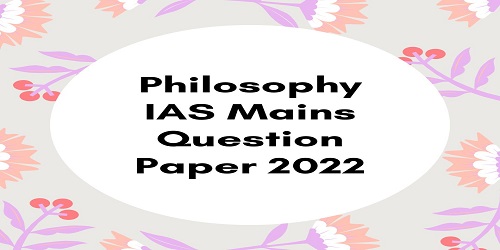
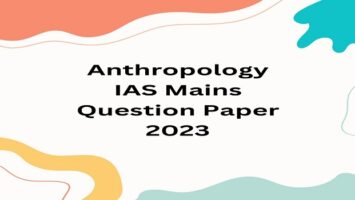
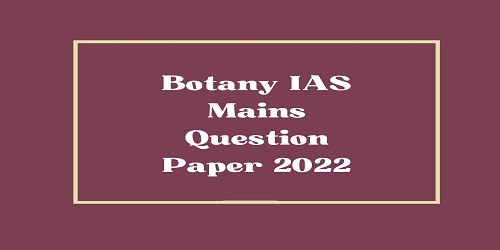
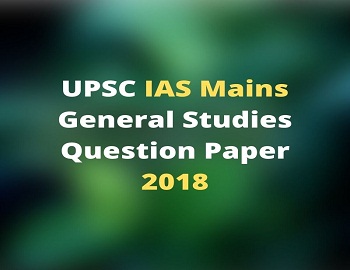
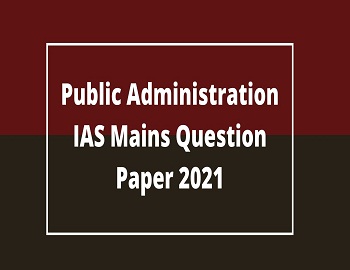
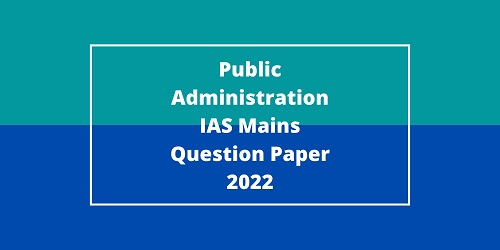
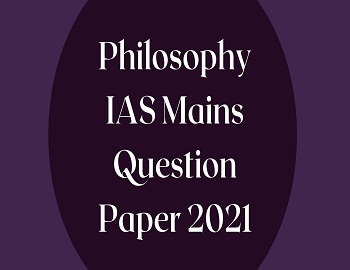
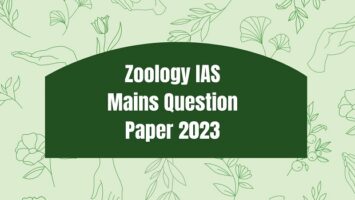
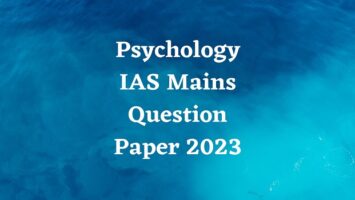
Comments (No)